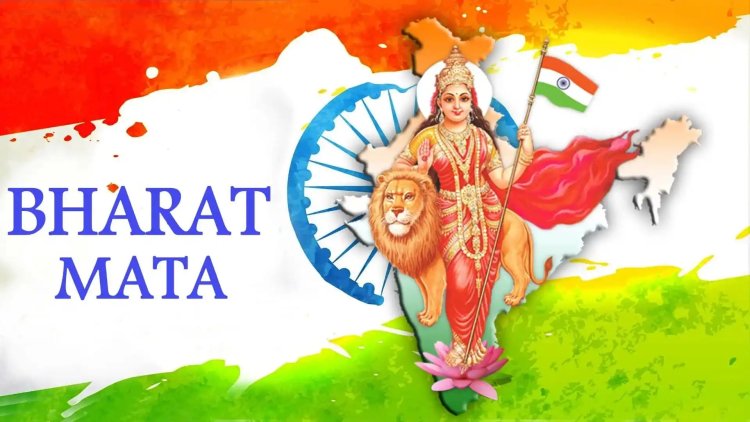Understanding 'Bharat Mata': Does Congress Grasp the Concept?
During a recent session of Parliament, Rahul Gandhi, a leader from the Congress party, mentioned 'Bharat Mata' while criticizing the ruling party for violence in Manipur.

During a recent session of Parliament, Rahul Gandhi, a leader from the Congress party, mentioned 'Bharat Mata' while criticizing the ruling party for violence in Manipur. His comments were removed from the record, but this incident raises a question: Does Congress truly comprehend the concept of Bharat Mata, or is it just a political statement?
To understand this, let's explore the idea of 'Bharat Mata' and how it's deeply tied to a spiritual form of nationalism that has been part of India since ancient times.
In Vedic texts, the geography of Bharat was described as the region north of the sea and south of the Himalayas, and its people were known as Bharatiya. This concept of Bharat has existed for thousands of years, and the feeling of nationalism was linked to love for the homeland, similar to one's mother. Even ancient Sanskrit verses emphasized the importance of the motherland, stating that it's superior to heaven.
In Hindu civilization, the motherland has always been revered as a divine manifestation, much before the idea of nationalism developed in the West. This is why traditional frameworks, like Marxism and Western ideologies, struggle to fully grasp Hindu nationalism and the concept of Bharat Mata. Leaders following these frameworks are likely to misunderstand Bharat, Bharat Mata, and Hindu nationalism.
In more recent times, Bankim Chandra Chatterjee played a pivotal role by depicting the motherland as a deity named 'Bharat Mata,' which revitalized spiritual nationalism in the late 19th century.
Despite being a civil servant under British rule, Bankim Chandra Chatterjee (1838-1894) protested against foreign domination. His influential work, "Anandamath," greatly impacted India's struggle for independence. The novel, first serialized in a Bengali journal and later published as a book, gained popularity and was translated into various languages. Set in 18th century Bengal during the transition from native to British rule, the story centered around Mahendra, a landlord who joined revolutionary ascetics (Santans) in the fight to liberate their motherland from British exploitation.
"Anandamath" personified the nation as a mother goddess and encouraged sacrificing material wealth for the greater cause of the Motherland. The song "Vande Mataram" (I salute thee, Mother) from the novel became a rallying cry for freedom fighters, and "Bharat Mata ki Jai" (Victory to Mother India) became an integral part of the nation's culture. This personification of the nation as 'Bharat Mata' also emphasized Bharat's original national identity.
This identity is deeply rooted in spiritual nationalism. However, Marxists and Western academia have often portrayed it as aggressive Hindu majoritarianism.
In his book "The Awakening of Bharat Mata: The political beliefs of the Indian Right," Swapan Dasgupta pointed out that the controversies around "Vande Mataram" are closely tied to questions of nationhood. Bankim Chandra Chatterjee envisioned India as a mother, and his imagery highlights this:
"O Mother, thou art love and faith, it is thy image we raise in every temple. For thou art Durga holding her ten weapons of war, Kamala at play in the lotuses And Speech, the goddess, giver of all lore. to thee I bow"
Furthermore, Dwijendralal Roy and Aurobindo stressed the religious aspect of nationalism, with Aurobindo equating it to Sanatan Dharma (eternal duty) and devotion to the Goddess.
Bipin Chandra Pal, a prominent figure in India's freedom movement, explained the concept of 'Bharat Mata' in his book "The Soul of India: A constructive study of Indian thoughts and ideals" (published in 1911). His insights from over a century ago remain relevant, as the concept of 'Bharat Mata' continues to be invoked in contemporary politics and discussions. Pal emphasized that the true concept of Mother applied to India goes beyond metaphor. However, due to modern education and foreign influences, many people today see it merely as a beautiful metaphor, detached from its deeper historical context.
In conclusion, 'Bharat Mata' symbolizes a spiritual nationalism that has been present in India for centuries. Understanding this concept requires delving into India's philosophical traditions and history, something that modern frameworks often overlook.
What's Your Reaction?
















